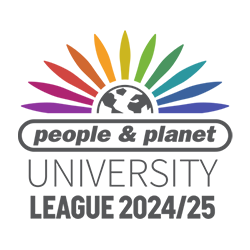-
Study
-
Undergraduate
- Search for a Course
- Undergraduate Open Day & Events
- Application Guides
- Northumbria University UCAS Exhibitions
- Foundation Years
- Undergraduate Fees & Funding
- School & College Outreach
- Continuing Professional Development
-
Postgraduate
- Postgraduate Study Degree
- Postgraduate Research Degrees
- Postgraduate Open Days and Events
- Postgraduate Fees & Funding
- Flexible Learning
- Thinking about a Masters?
- Continuing Professional Development
- Change Direction
-
Student Life
- The Hub - Student Blog
- Accommodation
- Life in Newcastle
- Support for Students
- Careers
- Information for Parents
- Students' Union
- Northumbria Sport
- Be Part of It
-
-
International
International
Northumbria’s global footprint touches every continent across the world, through our global partnerships across 17 institutions in 10 countries, to our 277,000 strong alumni community and 150 recruitment partners – we prepare our students for the challenges of tomorrow. Discover more about how to join Northumbria’s global family or our partnerships.
View our Global Footprint-
Applying to Northumbria
- European Union
- Our London Campus
- Northumbria Pathway
- International Events
- Entry Requirement and Education Country Agents
- Global Offices
-
Northumbria Language Centre
- Faculty Requirements
- Acceptable English Requirements
- Pre-sessional English Language and Study Skills
- Academic Language Skills Programmes (ALS)
-
International Fees, Funding & Scholarships
- International Undergraduate Fees
- International Undergraduate Funding
- International Masters Fees
- International Masters Funding
- International Postgraduate Research Fees
- International Postgraduate Research Funding
- International Money Matters
-
Life at Northumbria
- International student support
- Careers
-
International Mobility
- Current Northumbria Students
- Incoming Exchange Students
-
-
Business
Business
The world is changing faster than ever before. The future is there to be won by organisations who find ways to turn today's possibilities into tomorrows competitive edge. In a connected world, collaboration can be the key to success.
More on our Business Services -
Research
Research
Northumbria is a research-rich, business-focused, professional university with a global reputation for academic quality. We conduct ground-breaking research that is responsive to the science & technology, health & well being, economic and social and arts & cultural needs for the communities
Discover more about our Research -
About Us
-
About Northumbria
- Our Strategy
- Our Staff
- Place and Partnerships
- Student Profiles
- Alumni Profiles
- Leadership & Governance
- Academic Departments
- University Services
- History of Northumbria
- Contact us
- Online Shop
-
-
Alumni
Alumni
Northumbria University is renowned for the calibre of its business-ready graduates. Our alumni network has over 246,000 graduates based in 178 countries worldwide in a range of sectors, our alumni are making a real impact on the world.
Our Alumni - Work For Us
What will I learn on this module?
You will be able to develop your knowledge and critical appreciation of Audit, Corporate Governance, and Ethics. This module will combine theoretical and practical knowledge of the audit process, fraud detection and professional ethics and engage with academic research about audit and its role in society. It will enable you to gain knowledge of the principles of the auditing profession using international standards on auditing and to examine the practice of auditing and the underlying concepts, including the need for an independent audit and the development of the role of internal and external auditors in the business society; audit risk and assurance; and audit evidence. It will also connect to the international aspects of corporate governance, including audit committees, corporate governance models and theories, and the role of corporate governance in recent corporate scandals.
How will I learn on this module?
The module will use a mixture of tutor-directed learning, group learning and independent learning. An interactive approach will draw upon the directed learning undertaken, and participants' own experiences in the taught sessions.
You will undertake activities that facilitate applying theory to 'real-life' situations, critically evaluate, analyse, and make recommendations for appropriate ways for the organisation.
Directed learning will focus on a range of activities, such as pre-reading, interactive exercises, and engaging with the discussion board on the e-learning platform. Independent learning will focus on identifying and pursuing areas of interest about the subject and providing critical knowledge and understanding of the subject through a range of learning activities that will include extended reading, reflection, and research.
Critical reflection on knowledge, experience and practice underpins the learning and teaching philosophy along with the explicit development of competence. You are particularly encouraged to bring examples into the classroom to share. The module may also incorporate sessions delivered by external practice experts and academic experts in the field drawn from the Business School.
How will I be supported academically on this module?
Audit, Corporate Governance and Ethics module is delivered by an experienced teaching team who will provide ongoing advice and guidance on the module and your progress. Students will be supported by a Teaching and Learning Plan, which outlines the formal sessions' structure and content and appropriate tutor-directed learning and independent reading. The module is also supported by an online Blackboard site which includes learning materials and additional resources (e.g., academic papers and recommended readings).
What will I be expected to read on this module?
All modules at Northumbria include a range of reading materials that students are expected to engage with. Online reading lists (provided after enrolment) give you access to your reading material for your modules. The Library works in partnership with your module tutors to ensure you have access to the material that you need.
What will I be expected to achieve?
Knowledge & Understanding:
MLO1: Knowledgeable about theories, philosophies, and practices used in the areas of audit, ethics, and corporate governance.
Intellectual / Professional skills & abilities:
MLO2: Skilful in the use of professional and managerial techniques and processes
Personal Values Attributes (Global / Cultural awareness, Ethics, Curiosity) (PVA):
MLO3: Aware of ethical issues impacting on business and professional practice
How will I be assessed?
Formative assessment and feedback will take place throughout the module and take various forms including seminar activities, such as group tasks and discussions, group presentation, peer discussion and feedback tutor discussion and feedback, and self-reflection.
You will complete an individual assignment (3000 words), which will contribute 60% of the marks for the module. You will identify and critically discuss a contemporary issue of significance to the Auditing profession and corporate governance practice. You will conduct an academic critique of the topic/theories. You should apply the skills they have learned in the module, and other accounting and finance skills, to critically discuss and conduct an extensive literature review of the issue described. The second component of the summative assessment is a group presentation (30 mins) on one of the contemporary auditing issues, corporate governance, and ethical practices, which will contribute 40% of the marks for the module.
The 3,000 words individual assignment will cover MLO1 and MLO2 [PLOs 2.3, 3.2, and 4.1]. The group presentation will cover MLO1, MLO2 and MLO3 [PLOs 1.2, 2.1 and 2.3].
Pre-requisite(s)
None
Co-requisite(s)
None
Module abstract
Audit, Corporate Governance and Ethics module aims to develop students’ knowledge and critical appreciation issues related to audit, corporate governance, and ethics. It will combine theoretical and practical knowledge of the audit process, fraud detection and professional ethics and engage with academic research about audit and its role in society. It will enable you to gain knowledge of the principles of the auditing profession using international standards on auditing and to examine the practice of auditing and the underlying concepts, including the need for an independent audit and the development of the role of internal and external auditors in the business society; audit risk and assurance; audit evidence. Equally important, it will also connect to the international aspects of corporate governance, including audit committees, corporate governance models and theories, and the role of corporate governance in recent corporate scandals
Course info
Credits 20
Level of Study Postgraduate
Mode of Study 16 months Full Time
1 other options available
Department Newcastle Business School
Location City Campus, Northumbria University
City Newcastle
Start January 2026
All information is accurate at the time of sharing.
Full time Courses are primarily delivered via on-campus face to face learning but could include elements of online learning. Most courses run as planned and as promoted on our website and via our marketing materials, but if there are any substantial changes (as determined by the Competition and Markets Authority) to a course or there is the potential that course may be withdrawn, we will notify all affected applicants as soon as possible with advice and guidance regarding their options. It is also important to be aware that optional modules listed on course pages may be subject to change depending on uptake numbers each year.
Contact time is subject to increase or decrease in line with possible restrictions imposed by the government or the University in the interest of maintaining the health and safety and wellbeing of students, staff, and visitors if this is deemed necessary in future.
Useful Links
Find out about our distinctive approach at
www.northumbria.ac.uk/exp
Admissions Terms and Conditions
northumbria.ac.uk/terms
Fees and Funding
northumbria.ac.uk/fees
Admissions Policy
northumbria.ac.uk/adpolicy
Admissions Complaints Policy
northumbria.ac.uk/complaints














